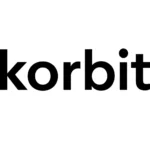Mitsubishi Electric and auto parts supplier Aisin are planning to establish a joint venture focused on electric and hybrid vehicle components, leveraging their combined expertise to enhance research and development efficiency, Nikkei reported. The new entity, which will be majority-owned by Mitsubishi Electric, will develop and produce key components such as energy-saving inverters.
Mitsubishi Electric’s automotive equipment division, which includes power steering and advanced driver assistance systems, reported sales of 944.1 billion yen ($6.03 billion) last fiscal year. The company has been strategically shifting resources from traditional products like navigation systems and fuel injectors for gasoline-powered vehicles to focus on the growing electric vehicle (EV) market. This transition was facilitated by the creation of Mitsubishi Electric Mobility, a spinoff launched in April to enhance collaboration with external partners.
Aisin, an affiliate of Toyota Motor and Japan’s second-largest auto parts supplier, specializes in powertrains, brakes, and body components. With sales of 4.91 trillion yen last fiscal year, Aisin leads the global market in automatic transmissions. However, the rising popularity of EVs, which typically do not use automatic transmissions, has prompted Aisin to seek new growth opportunities through strategic partnerships.
The joint venture between Mitsubishi Electric and Aisin comes as the auto industry faces significant pressure to adapt to new technologies such as electrification and autonomous driving. Companies are investing heavily in research and development to stay competitive. For instance, Honda Motor plans to invest 10 trillion yen in electric vehicles and software by fiscal 2030.
The EV market’s dynamics, particularly in China—the world’s largest EV market—are driving down prices due to overcapacity, impacting parts makers. Companies like Nidec are scaling back operations to improve profit margins. This environment underscores the necessity for auto parts suppliers to innovate and collaborate to maintain profitability and market relevance.
In the 2010s, electrical equipment manufacturers began pivoting from consumer-focused businesses like home appliances to commercial sectors such as automotive and IT due to intense price competition. The auto industry, however, demands low costs and high-quality standards from suppliers, further challenging these companies.
The rapid rise of EVs has led to significant restructuring within the industry. In 2021, Hitachi integrated its auto parts unit with three former Honda affiliates to form Hitachi Astemo, illustrating the trend towards consolidation and strategic realignment.
Through this joint venture, Mitsubishi Electric and Aisin aim to strengthen their positions in the evolving automotive market, ensuring they remain at the forefront of innovation in electric and hybrid vehicle technologies.




